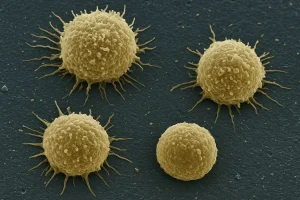Magnesium is one of the most crucial minerals for women’s health, supporting not only nervous and muscular system function but also playing a key role in skin condition. Women are particularly susceptible to magnesium deficiency due to hormonal cycles, pregnancy, and stress.
Magnesium Benefits for Skin
Magnesium plays a vital role in skin regeneration:
- Reduces inflammation – helps soothe acne and skin irritations
- Supports collagen production – maintains skin elasticity and firmness
- Regulates sebum – controls oil production
- Protects against oxidative stress – slows aging processes
- Aids wound healing – accelerates skin damage recovery
Daily Magnesium Requirements for Women
Age Group Daily Dose 19-30 years 310mg, 31+ years320, mgPregnancy 350-400 mg, Breastfeeding 310-360 mg
Best Food Sources of Magnesium
Plant-based foods:
- Nuts and seeds – almonds, pumpkin seeds, sunflower seeds
- Leafy greens – spinach, kale, arugula
- Whole grains – quinoa, brown rice, oats
- Legumes – beans, lentils, chickpeas
Other sources:
- Dark chocolate (minimum 70% cocoa)
- Avocado
- Bananas
- Fish (salmon, mackerel)
FAQ – Frequently Asked Questions
1. What are the symptoms of magnesium deficiency in women? Muscle cramps, fatigue, sleep problems, mood swings, and deteriorating skin condition.
2. When is the best time to take magnesium supplements? In the evening, as magnesium has a calming effect and supports sleep quality.
3. Can magnesium help with premenstrual syndrome (PMS)? Yes, studies show that magnesium can alleviate PMS symptoms, including abdominal pain and mood swings.
4. Is it possible to overdose on magnesium? At doses above 400 mg daily, gastrointestinal problems may occur. Always consult with a doctor.
5. Which medications can affect magnesium absorption? Diuretics, proton pump inhibitors, and certain antibiotics may reduce magnesium absorption.
Source: babsztyl.pl













